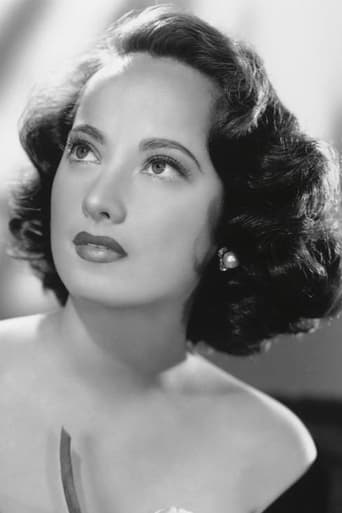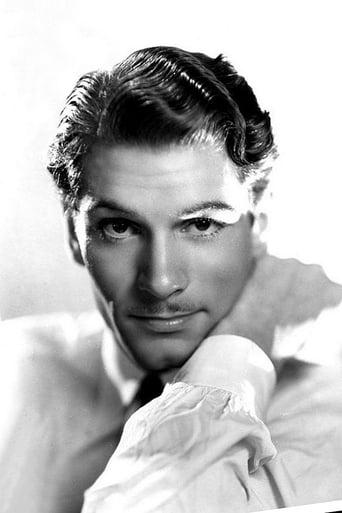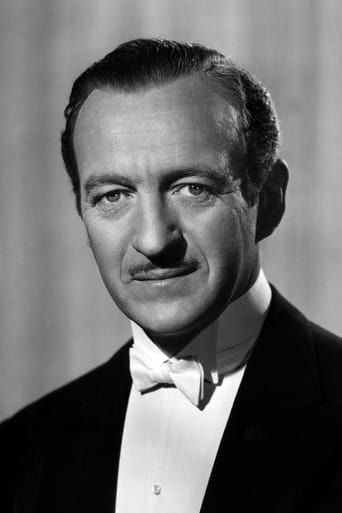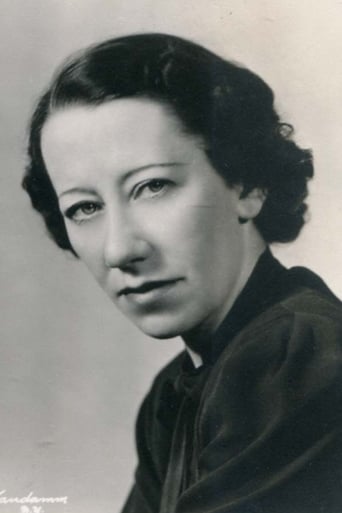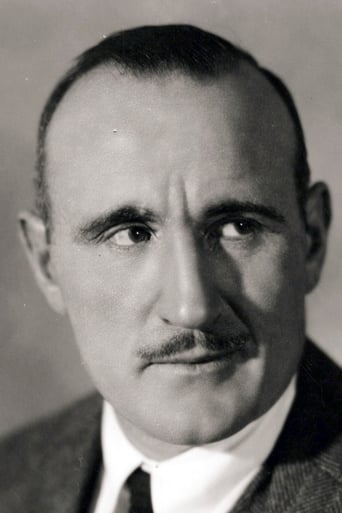Exoticalot
People are voting emotionally.
Smartorhypo
Highly Overrated But Still Good
Intcatinfo
A Masterpiece!
Candida
It is neither dumb nor smart enough to be fun, and spends way too much time with its boring human characters.
Robert McElwaine
1939 period drama based on Emily Bronte's classic novel which tells the tragic tale of unfortunate lovers Heathcliff (Laurence Olivier) and Cathy (Merle Oberon) who, despite their strong love for one another are forced by social circumstances to forever be apart.
Meeting for the first time as children; when Cathy's father (Donald Crisp) brings young abandoned boy to live in their country estate. However; years later after their father has passed away, Cathy's brother (Hugh Williams) who has inherited his father's title forces Heathcliff from their home. Now working as a stable boy, the class divide seems even wider and Cathy marries a wealthy neighbour (David Niven) forcing Heathcliff to leave heartbroken. However, he returns years later a different man given a change in his circumstances, but is it all now too late for he and Cathy to be together?The cold grey image of a lone traveler caught in the snowy weather, traversing the Yorkshire Moor's as he makes his way wearily to the estate of Wuthering heights, immediately captures the grim nature of director William Wyler's melodramatic drama. His relief at finding sanctuary is contrasted starkly by the brusque demeanour of his reluctant host who introduces himself as Heathcliff. It's an effective moment which subtly punctuates the foreboding behind a tale which first impressions would deceptively indicate to be a haunting ghost story. As he later peers out a window in the early hours of the morning, Lockwood (Miles Mander) believe himself to to have seen the ghostly apparition of a woman calling; " "Heathcliff, let me in! I'm out on the moors. It's Cathy!" Deceptive it may be but it serves as the impetus which provokes his distraught host to run in to the snowstorm on hearing of what his startled guest has witnessed, and for devoted housekeeper Ellen (Flora Robson) to recount to Lockwood the tragic story that has led Heathcliff to where he is now. Generally regarded as the definitive cinematic retelling of Emily Bronte's sole novel as an author, it was indeed controversial at the time of it's publication with it's themes of mental and emotional cruelty, none of which has been lost in it's translation from book to screen. It also shone a light on the hypocrisy's of then contemporary, 19th century mores which religious hypocrisy, morality, social classes and gender inequality, although certain aspects of this would have been watered down to appease 1930's sensibilities which were still fundamentally conservative by today's standards. What has not been diminished however is the raw power behind Bronte's work as it was brought effectively to life by director William Wyler, who's later screen credits would include; Roman Holiday and the multi-oscar winning epic; Ben Hur. With Heathcliff you have a bold romantic lead who's melancholic early life would hint that he was destined to be damned forever in his pitiful existence. A forlorn figure who is taken From the streets of Liverpool by Mr. Henshaw who he brings home to his two offspring, the sweet and kindly Cathy and the spirited, rambunctious Hindley, the early seeds of the changing dynamic between the wretched urchin and his faux-siblings. The feelings of an instant bond between Heathcliff and Cathy which is juxtaposed by the bitter resentment harbored by Hindley today's his adoptive brother are keenly realized. It adds a crucial element which drives the plot in adulthood which Bronte artfully composed and Wyler successfully brings to life.; particularly so in adulthood after Mr. Henshaw passes away leaving his genuine son to inherit the mantle of master of Wuthering Heights.The burning resentment that Hindley has for Heathcliff; and inevitable vice versa truly adds a pivotal component to the character of the former street urchin which, as it does Cathy. The burning passion between she and the young man who her father once brought home with him years ago as a child; but there is an undercurrent of uncertainty in the validity of their relationship which Merle Oberon conveys with controlled subtlety. There is however a gloomy, downcast ambience to the backdrop of the Yorkshire Moors where the young lovers where the young lovers run away to on their romantic trysts. It has has an air of foreboding that contrasts the burning desire that each have for one another, as if acting as a portents of things to come. After all, when is all said and done both are deeply flawed characters, and one would dare to say they prove themselves to be thoroughly immoral individuals. Cathy eventually marrying the wealthy Edgar Linton (David Niven), a man of wealth and good breeding with her true feelings for him always at best being regarded as ambiguous at best. As much as she loves him there's an underlining air of snobbery about Cathy which brings in to question the legitimacy of the choice that she has made and cruelly critical over Heathcliff's scruffy appearance, saying; "Look at you, you get worse everyday. Dirty and unkempt, and in rags". Heathcliff on the other hand is a thoroughly embittered figure, frustrated by his imposed station in life, not least of all because of the wedge it drives between he and the woman he adores. It's an attitude that rears it's ugly head in the latter part of the film after his departure from Wuthering Heights following Cathy's marriage. The impact of the choices they make are sorely felt and are magnified 10 fold by the powerful performances by David Niven who brings an air of quiet nobility and dignity to Linton, with Geraldine Fitzgerald equally effective, for reasons I won't go in to as his naive sister Isabella. The rest of the supporting cast are also of the highest calibre delivering performances which are very much commendable. However, the film ultimately belongs to both Oliver and Oberon with the former making for a magnetic screen presence as the roguish Heathcliff, capturing the dual nature of his dark conflicted personality masterfully. The latter is nothing if not a noteworthy foil, with the smoldering passion in her performance has complimented admirably by his own. To it's detriment however, modern audiences might not generally take to the film as others might. It's 1930's melodramatic handling of the source material arguably would not be quite so palatable today as it was nearly eighty years ago. And what should have been a justifiably downbeat climax is somewhat undermined by it's slightly more uplifting final shot. Never the less, William Wyler's rendering of the Bronte's magnum opus is still a predominantly engaging melodrama despite it's shortcomings. It may have lost something in age which won't be appreciated by contemporary audiences but more hardcore admirers of cinema will likely find something within it to savor.
reisen55
I have never seen WHeights until last night as my wife is a mega Olivier fan and always loved the film. So we sat down for a total glorious piece of soap opera trash acting. Like all the Bronte tales (I think of Jane Eyre), the mood is dark and longing. The sets, here, were mostly good for the time but some process shots were so obvious as to be painful.Cathy and Heathcliff - how could he possibly LOVE a woman who changes her mind LIKE THAT on who she likes and wants to marry? I found zero sympathy for Merle Oberon in this role - she is a woman to stay far away from. (Hey, if the only place you can kiss a girlfriend is standing on one cliff, something is wrong). And every time old Olivier gets offended as a character, BAM off he goes on his horse.Everybody else is perfectly fine having little to do but stand and comment on this train wreck of a relationship. Niven, as fine as he is, is just THERE to be the nice chap who gets taken for a fool by Kathy who really loves Heathcliff when she is not saying nasty things about him and BAM off he goes again.If there are spoilers here, the book and film have been around for ages so who cares. It is also a plot one can see coming for miles.But it is glorious fun trash and the ACTING? OMG - Kathy's deathbed scene makes Love Story look like Hamlet. Wide eyes, smiles, pain, wide eyes, clawed hands, wide eye..... oh, painful. I could just see her coming down the stairs with Heathcliff at the bottom 'These are the stairs of the heights.....' like Max in SBoulevard. Olivier was almost as bad here.This is a wonderful piece of high trash, enjoy it, laugh a lot and remember that films often do not make much sense at all either in watching or by those who make them.In the end, Kathy should have told Heathcliff "Frankly my dear, I don't give a damn".
Prismark10
This was Laurence Olivier's introduction to an American cinema audience. An actor who has arrived from the English stage with a big reputation. I can only imagine the shock and awe the audience felt when they saw his Heatcliff. Its akin to what modern cinema audience in the 1970s felt when they first saw Robert De Niro or Al Pacino at full throttle. Olivier is wild fury, he brings his character alive and a style of acting that to many would had been alien outside of gangster films of the 1930s.This version of Wuthering Heights only adapts the first half of the book. I think this is the right decision. We can concentrate on the young gypsy boy always treated as an outcast who meets his soul mate in Cathy (Merle Oberon) which blossoms in the wild Yorkshire Moors but they are doomed never to be together.Oberon and Olivier drive this film with a wild, dark, even a supernatural fashion. The cinematography is splendid and so are some of the side characters and the great David Niven is put in the shade in this movie.There have been countless adaptations of the novel but this is a must see.
dougdoepke
Talk about a brooding outdoors, those moody moors may represent a sense of liberation for the lovers, but they're not exactly inviting. Besides, it rains all the time, so best to be in the house even if mansions represent the confining space of class and class privilege. That's the trouble. Cathy is 'to the manor born', as they say. Thus she's really torn between the wild outdoors and the comforts of ballrooms and servants. Then there's the enigmatic Heathcliffe, a dark wild-souled type guy, perfectly at home in those bleak rolling hills. He was a street ragamuffin before Cathy's elderly father adopted him into the manor as a stable boy. But he and a young Cathy manage to bond despite the class difference, a bond that eventually blossoms into true love. But that true love only breaks to the surface in the wild outdoors where a common humanity replaces artificial social distinctions. If only Cathy could find the will to break free of the leisure class.What a great visual experience, the b&w expertly coordinated with the settings. When the two lovers approach the rocky crag, there's almost a feeling of an outdoor altar calling to them amidst the brooding hills. It's such a perfect visual contrast to the high-key ballrooms and parlors of the Lintons. The Lintons, however, are not to be despised despite their airs and privileges. In fact, they are very real victims of Cathy's suppressed feelings and Heathcliffe's cold calculations. As it turns out, there is no spectral salvation for them. As a result, the love being portrayed here is a kind of mad love, one that brings tragedy to all concerned. Thus, there's a reason those moors brood in dark fashion, while the movie itself remains the best of the many makes and remakes.

